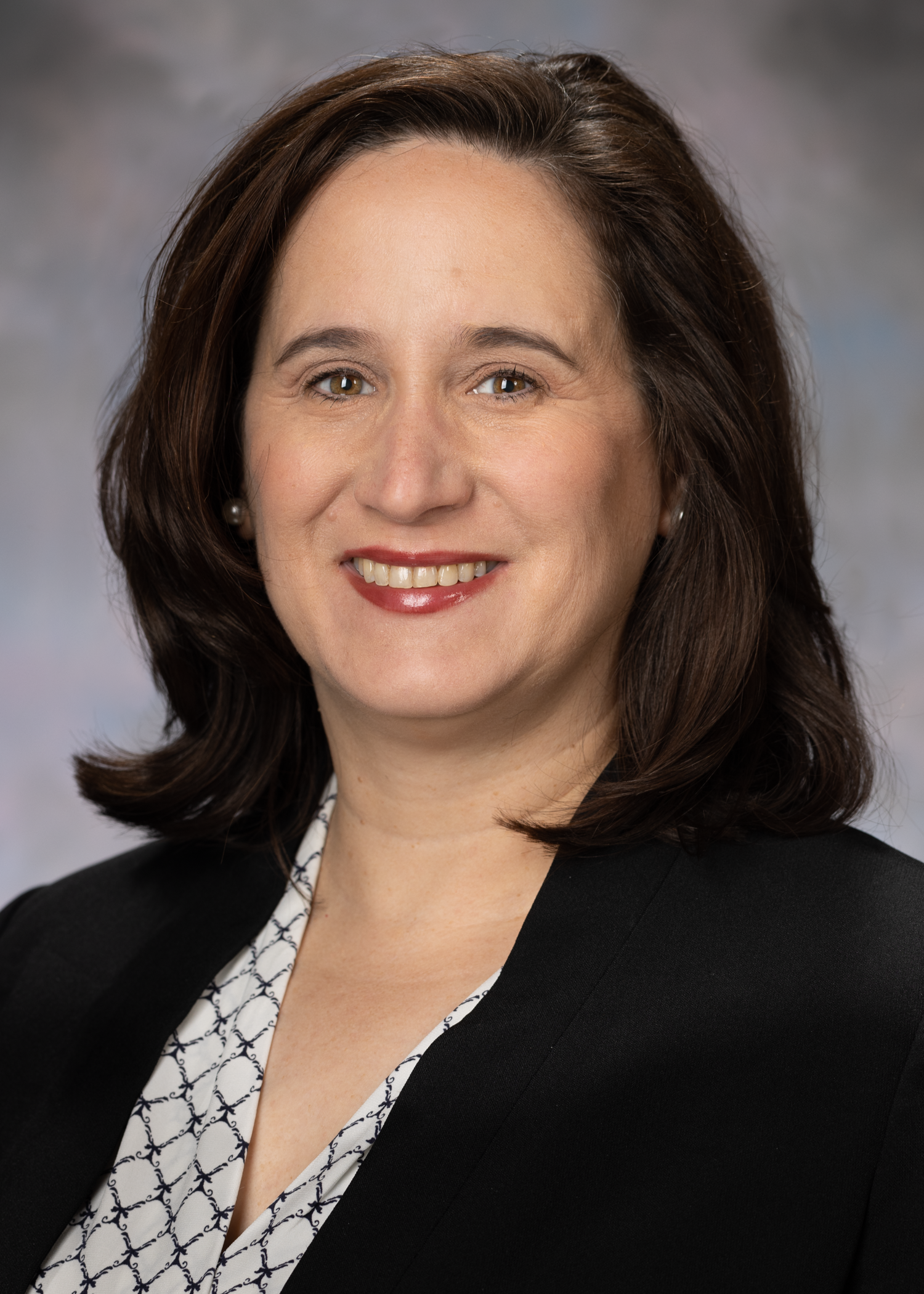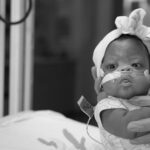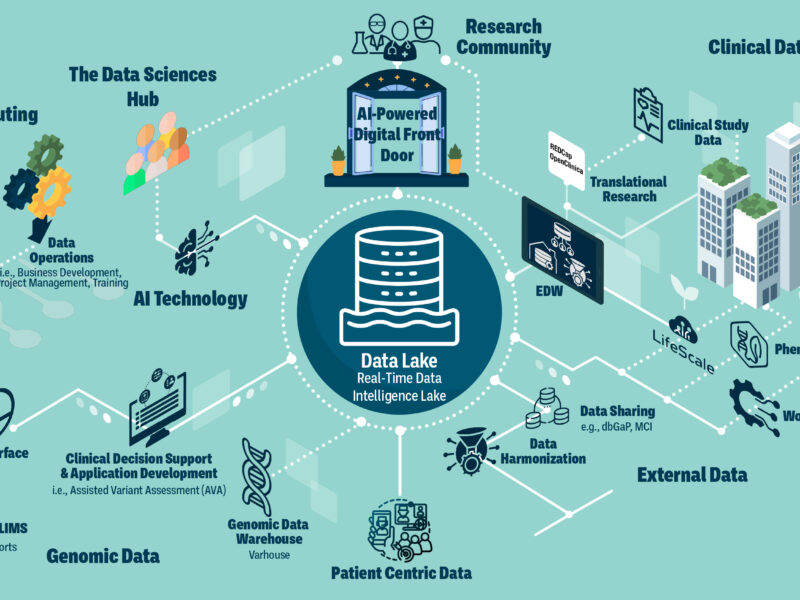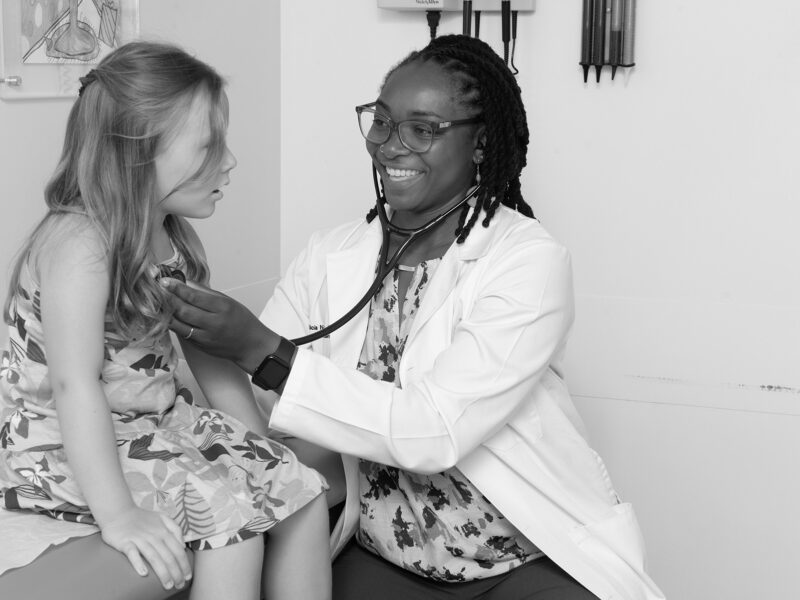Innovations in Pediatric Cancer and Transplants: Q&A With Sara K. Rasmussen, MD, PhD
Innovations in Pediatric Cancer and Transplants: Q&A With Sara K. Rasmussen, MD, PhD https://pediatricsnationwide.org/wp-content/themes/corpus/images/empty/thumbnail.jpg 150 150 Pam Georgiana Pam Georgiana https://pediatricsnationwide.org/wp-content/uploads/2023/07/May-2023.jpg- February 27, 2024
- Pam Georgiana
Sara K. Rasmussen, MD, PhD, is a transplant and pediatric surgeon in the Department of Abdominal Transplant and Hepatopancreatobiliary Surgery and an associate principal investigator in the Center for Clinical and Translational Research in the Abigail Wexner Research Institute at Nationwide Children’s Hospital. She earned both her medical and doctoral degrees from West Virginia University School of Medicine. In the early years of her medical career, she dedicated her initial studies to the field of Retrovirology – the study of a unique type of virus characterized by its ability to alter permanently infected host genomes through its replication cycle. Unlike many viruses that replicate without reliance on host cellular DNA, retroviruses carry their own RNA genome and possess an enzyme called reverse transcriptase. This enzyme allows them to convert their RNA genome into double-stranded DNA, which integrates into the host cell’s DNA and becomes a permanent part of its genetic makeup. Throughout vertebrate evolution, retroviruses have been shaping the genomes of the animals they infect.

During her doctoral research on the mechanisms of retroviral replication, Dr. Rasmussen became very interested in the class of retroviruses that have gone extinct and left permanent alterations in the human genome. This class of retroviruses is called Human Endogenous Retroviruses (HERV). She intuitively understood that HERVs have a huge impact on human health and disease. As interest in the field exploded, she saw a need to study HERVs in pediatric cancer and transplant patients.
We recently caught up with her to learn more about her research.
Q: Why study Human Endogenous Retroviruses, known as HERVs?
A: HERVs are elements in our genes that result from ancient viral infections. Over time, these viral infections inserted a copy of their genome into the infected host’s genome and became a permanent part of the host DNA. In fact, 8% of our DNA is comprised of these retroviral relics. These genetic elements are collectively called HERVs, and they are fascinating! HERVs activity in our genome, in some cases, is beneficial. For example, syncytin protein, the crucial building block of the mammalian placenta, is actually the envelope protein from HERV-W. Another benefit is the parotid gland’s production of salivary amylase – a crucial evolutionary event that allowed the expansion of the hominid diet to include starches. The salivary amylase gene in the parotid gland is driven by a HERV-derived promoter in our genome. I was so fascinated by the rapidly expanding work in HERV biology, but I was also concerned that few studies were focused on pediatric diseases. Therefore, I decided to focus on studying how one in particular affects the cellular makeup of pediatric tumors.
Q: Tell us more about the HERVs you are studying.
A: We are investigating HERV type K, which we recently noted was strongly upregulated in some hepatoblastoma patients. This unique activation may interact with the cellular processes that mediate immune responses and inflammation. We seek to identify whether HERV-K activity could be a biomarker in pediatric tumors. Some HERV-Ks contribute to regulating critical biological processes during human tissue development, which means they can promote the development or progression of cancer.
There is still much to learn about how HERV-K affects disease in children. So far, research has focused on extrapolating data and insights from studies on adults with cancer. Our research targeted at the cellular level will lead to discoveries on how tumors, specifically cancer, develop in children.
Q: How does this relate to transplants?
A: I am interested in the potential role of HERV-K in ischemia-reperfusion injuries during solid organ transplantation. During the procurement of the donor organ, the organ is flushed with a cold preservation solution to decrease cellular metabolic activity. Then, when the transplanted organ is implanted into the recipient and blood flow returns to the organ, the temperature of the organ rises quickly. In 10% of the cases, this sudden and impactful change of temperature can cause a severe enough injury to compromise the ultimate function of the new organ. Past studies have shown that HERV-Ks are upregulated in cases of stress in the body. The events that occur during ischemia and reperfusion likely provoke a stress response, so it is a logical area of investigation for us.
Q: What work is happening in the lab right now?
A: With my postdoctoral fellow, Silvia C. (Batezati) Carrau, MD, PhD, my lab is collecting samples from the Cooperative Human Tissue Network (CHTN) and working with the Steve and Cindy Rasmussen Institute for Genomic Medicine (IGM) to research the HERV-K expression in tissue samples from pediatric cancer. We are looking for patterns that may identify how tumors develop and identify potential new biomarkers and therapeutic targets, which are desperately needed in pediatric oncology.
Q: What are you most excited about right now?
A: RNA sequencing has significantly advanced research in Retrovirology by providing a powerful tool to study expression profiles like HERV-K. With the state-of-the-art facilities at Nationwide Children’s Hospital, I am in the ideal location to conduct these investigations.
The current preponderance of published evidence shows that HERV-Ks are important to adult disease (for example, ovarian cancer, breast cancer and melanoma), but there has been limited focus on children. I have a unique position as a pediatric surgeon with a background in Retrovirology research to drive this vital work further. Our team is looking forward to discovering how HERVs contribute to disease in children so we can develop potential biomarkers and new therapies.
Also, both Dr. Carrau and I have a proven history of mentoring people in clinical and research work. Our lab is actively looking for enthusiastic undergraduates, graduates from different fields (Genetics, Retrovirology, Statistics and Bioinformatics), and medical students to be part of our team.
About the author
Pam Georgiana is a brand marketing professional and writer located in Bexley, Ohio. She believes that words bind us together as humans and that the best stories remind us of our humanity. She specialized in telling engaging stories for healthcare, B2B services, and nonprofits using classic storytelling techniques. Pam has earned an MBA in Marketing from Capital University in Columbus, Ohio.
-
Pam Georgianahttps://pediatricsnationwide.org/author/pam-georgiana/
-
Pam Georgianahttps://pediatricsnationwide.org/author/pam-georgiana/
-
Pam Georgianahttps://pediatricsnationwide.org/author/pam-georgiana/
-
Pam Georgianahttps://pediatricsnationwide.org/author/pam-georgiana/August 30, 2023
- Posted In:
- Featured Researchers
- Features
- Research










